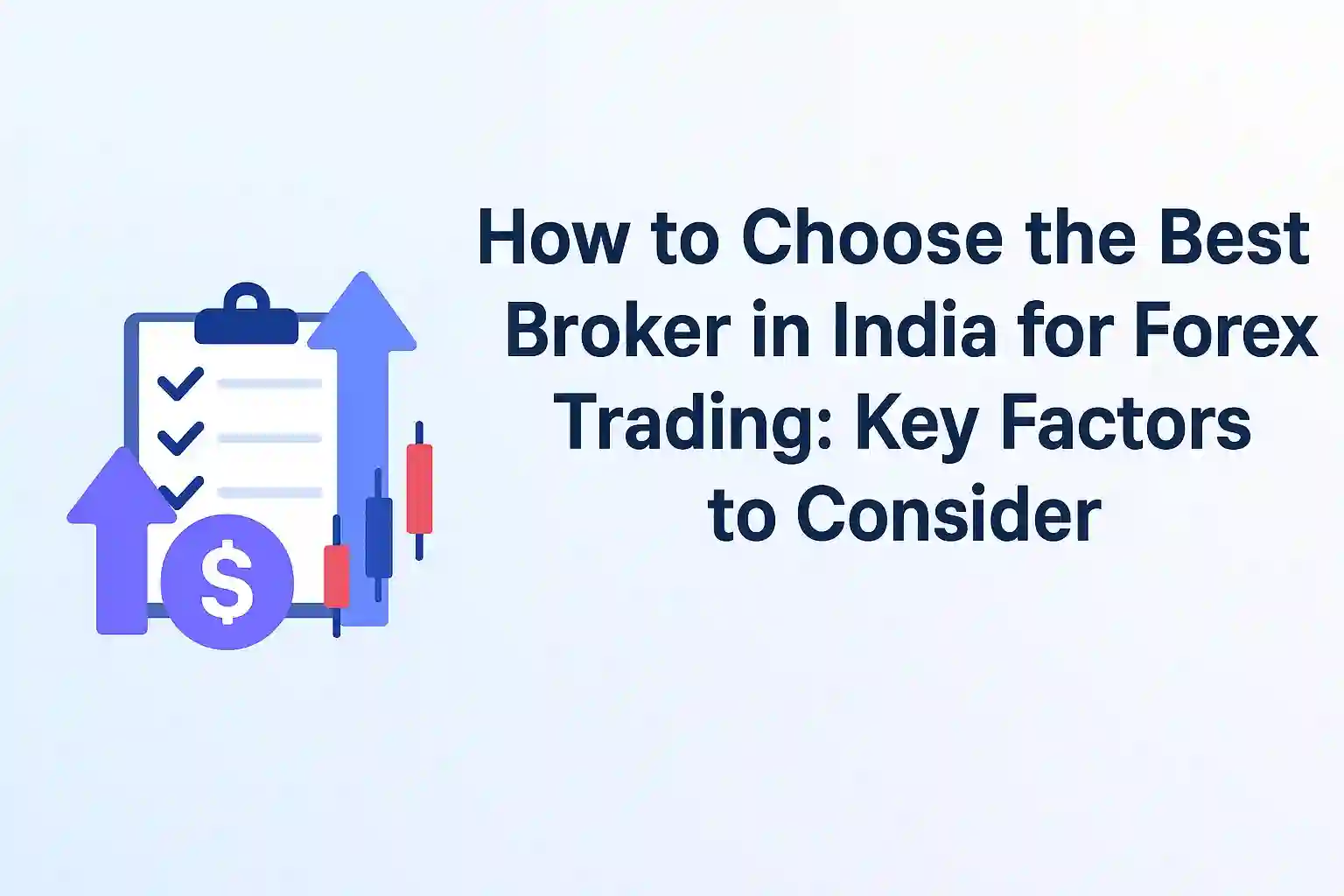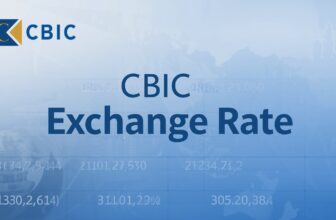
Navigating the forex market in India feels like stepping into a bustling bazaar — there is an overwhelming array of choices, each promising the best deals and the smoothest experience. Yet, much like selecting the perfect vendor in that crowded marketplace, finding the best broker in India for forex trading demands discernment, patience, and a keen eye for detail.
In this piece, I will unpack the nuances of selecting a forex broker in India, drawing from both industry standards and personal observations. The goal? To equip traders — especially those starting out — with the insights necessary to make informed decisions in a landscape that is as dynamic as it is intricate.
Key Factors in a Blink
| Factor | Why It Matters | What to Look For |
|---|---|---|
| Regulation & Safety | Protects funds, ensures compliance | SEBI-regulated for INR pairs; Tier-1 global regulators (FCA, ASIC, CySEC) for offshore brokers |
| Trading Instruments | Wider asset choices enhance opportunity | Access to major, minor, exotic forex pairs, commodities, indices, crypto |
| Trading Costs | Impacts profitability | Tight spreads, low commissions, transparent fee structures |
| Platform & Tools | Influences trading efficiency and strategy | MetaTrader 4/5, cTrader, proprietary platforms, robust charting, algorithmic trading tools |
| Deposit & Withdrawal | Affects convenience and cash flow | Fast processing, local payment options (UPI, Netbanking), low or no transaction fees |
| Customer Support | Essential during technical glitches or disputes | 24/5 or 24/7 multilingual support, live chat, email, phone |
| Educational Resources | Especially vital for beginners | Webinars, tutorials, market analysis, demo accounts |
| Leverage Options | Determines risk-reward ratio | Flexible leverage (within RBI guidelines for domestic brokers; higher for offshore brokers) |
Understanding the Indian Forex Landscape
Before diving into the criteria for choosing a broker, it is worth acknowledging the regulatory environment in India. The Reserve Bank of India (RBI) strictly regulates forex trading for Indian residents. Only specific currency pairs (known as INR pairs) can be legally traded through SEBI-registered brokers. Yet, many Indian traders explore international brokers offering a broader range of forex pairs and instruments — a grey area that exists outside of RBI’s jurisdiction.
This dual landscape complicates the search for the best forex trading broker in India. Should one opt for a locally regulated broker like Zerodha, renowned for stock and commodity trading but limited in forex options? Or consider an offshore broker with expansive forex offerings? This choice, I have found, hinges on several critical factors.
Key Factors to Consider When Choosing a Forex Broker in India
Let us break down these factors systematically, blending real-world practicality with the unique considerations Indian traders face.
Regulation: The Non-Negotiable Starting Point
I will start where every responsible trader should — regulation. For those intent on staying within the confines of Indian law, SEBI-regulated brokers are the obvious route. These firms, like Zerodha, allow trading in INR currency pairs (USD/INR, EUR/INR, etc.). However, the scope remains limited.
On the other hand, several Indian traders I have spoken with gravitate toward offshore brokers regulated by authorities like the FCA (UK) or ASIC (Australia). These brokers offer a vast array of forex pairs and higher leverage options. While these platforms are technically outside the RBI’s purview, choosing one with robust global regulation minimizes risks related to fund security and broker integrity.
Trading Costs: The Hidden Dealbreaker
Even seasoned traders can overlook spreads and commissions, yet these seemingly small charges eat into profits over time. Consider this: a broker advertising zero commission but with wider spreads might ultimately cost more than one charging a modest fee but offering tighter spreads.
Here is a simplified comparison of typical costs:
| Broker | Spread on EUR/USD | Commission (per lot) |
|---|---|---|
| Broker A (Zero commission) | 1.5 pips | $0 |
| Broker B (Low spread) | 0.2 pips | $6 |
For high-frequency traders, Broker B might offer better value despite the commission, simply because the tighter spread reduces entry and exit costs.
Platforms & Tools: The Trader’s Arsenal
Let us be honest — no one enjoys clunky software. The best forex broker in India for beginners and pros alike should offer platforms that are intuitive, fast, and rich in features. While MetaTrader 4 remains the industry workhorse, brokers providing MetaTrader 5 or cTrader often appeal to those seeking advanced functionalities like depth of market (DOM) tools or superior charting.
From my experience, offshore brokers tend to outpace local ones in platform versatility, offering everything from social trading networks to AI-driven analytics. These tools can be game-changers for strategy refinement.
Deposit and Withdrawal: The Often-Overlooked Frustration
Nothing dampens a trader’s enthusiasm like a withdrawal process that feels like navigating a bureaucratic maze. Indian-friendly payment methods — UPI, Netbanking, IMPS — can significantly ease this process. Offshore brokers supporting Indian Rupee accounts or local bank transfers score bonus points.
Educational Resources: For Those Still Finding Their Footing
Every seasoned trader once stood where many beginners do today — staring at candlestick charts, economic calendars, and technical indicators with a mix of curiosity and confusion. Finding the best forex broker in India for beginners is often less about flashy features and more about how well a broker supports the learning curve.
What sets top brokers apart in this regard is the depth and accessibility of their educational resources. In my exploration, I have noticed that brokers who invest in layered learning experiences tend to cultivate more confident, successful traders over time. This goes beyond offering a static PDF guide. The best brokers create interactive ecosystems, blending theory with practice.
Here are key elements that elevate a broker’s educational offering:
| Resource Type | Purpose | What to Look For |
|---|---|---|
| Webinars & Live Sessions | Real-time learning from experts, Q&A opportunities | Regular schedules, guest analysts, recordings for later viewing |
| Demo Accounts | Risk-free environment to practice strategies with virtual funds | Unlimited access, real-market conditions, resettable balances |
| Video Tutorials | Bite-sized, visually engaging content covering platform use, strategies, and market concepts | Beginner to advanced levels, updated regularly |
| Market Analysis & Insights | Keeps traders informed about global events, technical patterns, and economic data | Daily/weekly updates, expert commentary, actionable takeaways |
| E-books and Articles | Deep dives into forex fundamentals, risk management, and trading psychology | Authored by industry professionals, comprehensive yet digestible |
| Quizzes & Interactive Tools | Reinforces knowledge retention through active engagement | Varied difficulty, instant feedback, progress tracking |
An offshore broker like XM or Pepperstone typically excels in this arena, offering multi-language support, structured courses, and even personal account managers to guide beginners. Some brokers go as far as creating trader communities or forums where participants can exchange insights, strategies, or even frustrations — fostering a collaborative environment that mirrors real-world trading desks.
Another aspect I have come to appreciate is trading psychology modules. Technical skills alone cannot insulate a trader from poor decision-making driven by fear or greed. Brokers that incorporate psychological coaching or mindset training prepare their clients not just to trade, but to trade well under pressure.
Lastly, gamification is emerging as a trend. Some platforms now integrate achievement systems, leaderboards, or rewards for completing educational milestones. While it may sound gimmicky, this approach taps into human motivation patterns, making learning less of a chore and more of a challenge to conquer.
In essence, the best forex broker in India for beginners is one that recognizes trading as both a technical craft and a psychological journey, providing resources that evolve with the trader’s needs. For anyone still finding their footing, these educational features could be the difference between floundering and flourishing.
Is Zerodha the Best Option for Forex Trading?
A question I often encounter is: Is forex trading with Zerodha viable? Technically, forex trading Zerodha supports is limited to INR-based pairs on Indian exchanges. While it excels in equity and commodities, its forex scope is narrow. For those seeking broader exposure, an offshore broker regulated by CySEC or ASIC often becomes the go-to.
Conclusion: Which Forex Broker is Best in India?
So, which forex broker is best in India? The answer, predictably, depends. For INR pair trading within India’s regulatory framework, Zerodha or Upstox offer simplicity and compliance. But for those willing to explore beyond, names like IC Markets, Pepperstone, or XM — all regulated by top-tier authorities — often emerge as frontrunners.
Selecting the forex best broker in India is less about chasing the most popular name and more about aligning with one’s trading style, legal comfort zone, and strategic needs. After all, in the ever-volatile world of forex, the right partnership can make all the difference.

















